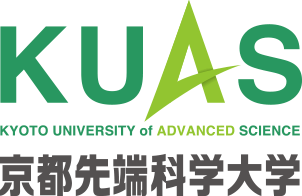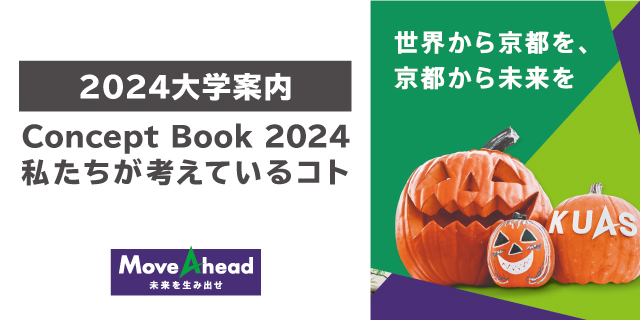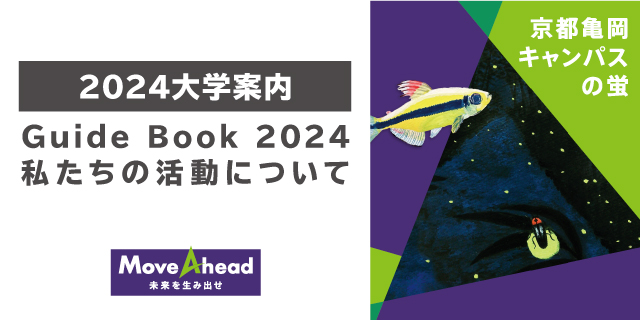Business School (MBA Program) Instructor Profile
Instructors
The KUAS Business School offers courses taught by instructors with vast experience of working as leading professionals in the world, in addition to KUAS professors.
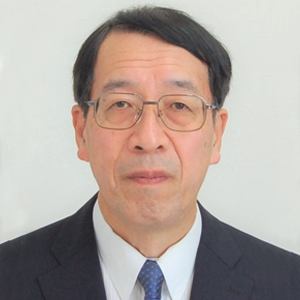
Specially-appointed Professor YAMADA Hiroshi
Accounting standards have been progressively adopting IFRS (International Financial Reporting Standards) or moving towards convergence to IFRS in many countries around the world, and recently there has been a move to expand the release of sustainability information. Through lectures based on my practical experience in accounting and finance at a major international company in Japan, and my involvement in the development of accounting standards at the Accounting Standards Board of Japan (ASBJ), you will learn practical knowledge of financial accounting, the foundation of business.
[Courses in the instructor’s charge]
Fiancial Accounting
[Academic and career backgrounds]
Hiroshi Yamada graduated from Tokyo University’s Faculty of Economics and Management and was awarded an MBA from Columbia Business School.
He was in charge of consolidated accounting (U.S. GAAP and IFRS) and disclosure at Panasonic Corporation, where he also held the positions of Controller of the Tokyo Branch Office and Chief Accounting and Liaison Officer.
He has also served as a member of the Accounting Standards Board of Japan (ASBJ) and the Global Preparers Forum (GPF) of the International Accounting Standards Board (IASB) on a part-time basis.
After that, he served as a visiting professor at the Graduate School of Management Information Sciences of Osaka University of Economics and at the Faculty of Commerce and Graduate School of Commerce of Doshisha University.
His areas of expertise include international accounting, international convergence of accounting standards, and corporate information disclosure.
Course overview
Financial Accounting
The objective of the course is to help students become “intelligent readers” of the financial reports of public companies. The course focuses on understanding how the primary financial statements, including cash flow statements, are prepared and learning in-depth about accounting standards (based mainly on International Financial Reporting Standards (IFRS)) related to individual topics such as revenues, inventory, long-lived assets, leases, and pensions, etc. This course can be helpful for students who want to be equipped with accounting knowledge that aids financial statement analysis. This course covers the use of financial accounting in actual business contexts. This course combines lectures and discussions of the assigned materials. A practitioner lecturer provides this course with practical accounting experience.
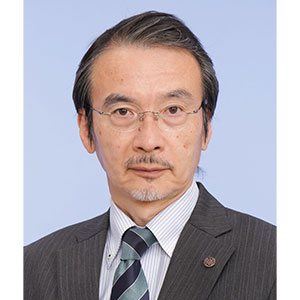
Professor ONOZATO Mitsuhiro
“I conduct research mainly on the obligations and responsibilities of directors under the UK company law in comparison with their Japanese, U.S., and other equivalents. I hope to have active discussions with you about the field of corporate governance in corporate law from a comparative perspective.”
[Course in the instructor’s charge]
Comparative Corporate Law
[Academic and career backgrounds]
ONOZATO Mitsuhiro left the Doctoral Program in Corporate Sciences (Corporate Law Course), Graduate School of Business Sciences, University of Tsukuba, after meeting all program requirements but the submission of a PhD dissertation. Before he assumed his current position, he had worked in the Securities Sales Department, Asset Management Service Department, Pension Planning Department, Real Estate Department, etc. of Sumitomo Mitsui Trust Bank, Limited (the former Chuo Mitsui Trust and Banking Company, Limited). During that period, he was a visiting researcher at the Faculty of Law, University of Oxford, and assumed other external positions. He also currently serves as a director of the Japanese Association of International Business Law.
Course overview
Comparative Corporate Law
This course mainly examines corporate governance in Asian countries from a legal perspective. Corporate governance in Asian countries has provided an interesting subject for various segments of people in Japan and abroad because of the rapid growth of those economies. Business promotion in those countries particularly necessitates a good understanding of that subject. For this reason, this course aims to enable attendees to acquire (1) a thorough understanding of the history of those countries, market systems therein, and the legal characteristics thereof, all of which affect corporate governance there and (2) the ability to examine corporate governance in major Asian countries (China, Singapore, India, South Korea, Taiwan, Japan, etc.) theoretically and practically from a legal perspective in comparison with corporate governance in the UK, the U.S., and the EU. Each class will be given in an interactive manner, with attendees making reports on each relevant chapter of an English textbook, putting questions about those reports to each other, and having discussions.
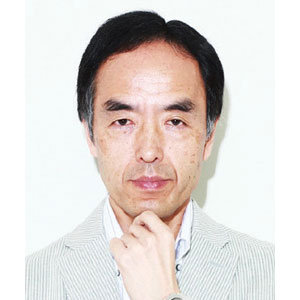
Professor KATO Yasuyuki
“I specialize in finance and investment theory. My recent focus of interest has been ESG and the SDGs. I hope to explore new methods of corporate management and investment in an age of post-capitalism together with you.”
[Courses in the instructor’s charge]
Finance; ESG Investment; Investment Management Theory and Practice; Research Guidance
[Academic and career backgrounds]
KATO Yasuyuki graduated from the Department of Informatics, School of Science, Tokyo Institute of Technology. In 1980, he completed the Master's Program in Systems Science, Graduate School of Science and Engineering, Tokyo Institute of Technology, obtaining a Master of Science. In the same year, he joined Nomura Research Institute, Ltd. (NRI). After working as a General Manager of the Systems Science Department and a senior researcher at NRI, he was appointed as Director of the Nomura Securities Financial Engineering & Technology Research Center in 1998. He also worked as a representative in New York and London for a total of six years. In 2005, he was appointed as a Senior Managing Director of Nomura Securities Co., Ltd. In 2011, he began to work as a professor at the Graduate School of Management, Kyoto University. In 2016, he received a PhD from Kyoto University. He has served as a member of the Board of Governors of Government Pension Investment Fund (GPIF) since 2017, as a specially appointed professor at the Graduate School of Management, Tokyo Metropolitan University, since 2018, and as a director at the Money Design Research Institute and a visiting professor at the Graduate School of Management, Kyoto University, since 2019. He has been also involved in founding multiple fintech companies.
Course overview
Finance
The course aims to enable students to acquire vast specialized knowledge of finance. Students will learn finance theories and specific data analysis methods as minimum requirements for performing the duties of corporate management, planning, or finance, or the duties of investment and banking at financial institutions. Students will begin by learning what functions the financial market, which covers interest, stocks, securities, etc., carries out in the economy and society. After that, they will acquire a thorough understanding of a wide variety of financial products and the transaction methods of major market players, including institutional investors. In the theoretical part of the course, students will learn how to analyze cash flow in an uncertain situation first and then how to measure the value of investment projects, companies and securities, which is fundamental to M&A. Moreover, students will acquire vast knowledge of corporate finance, including the capital and dividend policies of companies. In the second half of the course, students will learn portfolio theory, which underpins investor behavior, and derivative transactions, which are essential for risk management.
ESG Investment
This course aims to enable students to study investment and corporate management focused on ESG, or environmental, social, and governance. ESG investment is investment in companies that greatly contribute to society through which investors aim to boost their investment performance, while ESG management is a type of corporate management through which companies aim to increase their profits by conducting socially needed businesses. It is thought that both ESG investment and ESG management will become more important in the capital market in the future. Students will begin by learning the principles of ESG investment and ESG management and their historical backgrounds to deepen their understanding of ESG. Next, students will learn the realities of ESG investment and ESG management from specific examples of ESG investment methods used by institutional investors and ESG management methods used by companies. After that, they will acquire practical skills in ESG investment and ESG management while learning empirical theories about the impacts of ESG on investment performance and corporate value.
Investment Management Theory and Practice
The course aims to enable students to learn specialized theories about investment management performed by institutional investors and applied skills in the practice of investment management. Major world-class institutional investors manage a huge amount of funds in the global market by making full use of the most advanced investment management methods. In this course, students will begin by learning the basics of portfolio theory, which underpins investment management. Afterward, the scope of learning will be expanded to practical applications based on advanced methods. In the application part of the course, students will learn representative themes concerning the practice of investment management in detail, study major theories behind them, and then receive practical training and conduct positive analysis to acquire expert skills in investment management. The course covers asset allocation, diversified international investment, factor management, smart beta management, bond portfolio construction and cash flow management, methods of evaluating investment performance, risk management methods, and investment methods using AI.
Research Guidance
In this Research Guidance course, students will receive research guidance based on knowledge of Finance, ESG Investment and Sustainable Finance, and Investment Management Theory and Practice, on which business administration builds, toward the completion of their Master’s thesis about the research theme they determine.
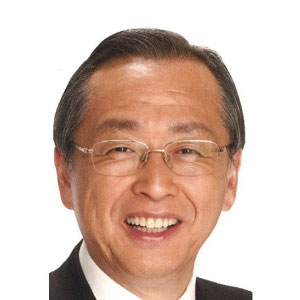
Professor TANIGUCHI Takayoshi
“I will teach courses on taxation systems, focusing on their practical aspects, instead of their theoretical aspects. The subject of Corporate Taxes for Organizational Changes is especially difficult, but I hope that students will understand the basic structure of those taxes. I trust that students will acquire a good understanding of taxes and use it to devise management strategies in the future.”
[Courses in the instructor’s charge]
Introduction to Taxes; Corporate Taxes for Organizational Changes; Tax Accounting; Research Guidance
[Academic and career backgrounds]
TANIGUCHI Takayoshi received a PhD in Economics from Kyoto University. He left the Doctoral Program at the Graduate School of Economics, Kyoto University, after being recognized as having met all requirements. He currently serves as Director of TANIGUCHI Takayoshi Certified Accountant and Tax Accountant Office. He is a certified accountant and a tax accountant. He also serves as Chairman of the Kyoto University Keijinkai Association. In 1975, he joined Showa Audit Corporation (currently Earnest & Young ShinNihon LLC). In 1985, he left the audit corporation and began to work independently. In 1993, he ran for the House of Representatives and won the election. He was elected to the Japanese Diet five times until 2009. During that period, he served as State Minister of Finance (January 2002 to September 2003) and State Minister for Internal Affairs and Communications (September 2007 to August 2008). He played a leading role in Japan’s diplomatic relations with Middle Eastern countries and appealed to other Diet members for cooperation in establishing the Association for Japan–United Arab Emirates (UAE) Parliamentary Friendship, succeeding in the initiative in 2002. He served as Secretary-general of the association and worked to further strengthen the bilateral partnership. In 2004, he was appointed as Chairperson of the Committee on the Economy, Trade and Industry of the House of Representatives and worked to examine relevant bills and respond to foreign parliamentary missions. After retiring from the Diet, he ran an accounting office and an accounting school in Yangon, Myanmar, from 2013 to 2015. At the same time, he conducted surveys on the status of accounting in Myanmar.
Course overview
Introduction to Taxes
This course aims to enable students to learn about the overall framework of the corporate tax system, focusing on the corporate tax and the consumption tax, which are core taxes in Japan, as well as local taxes. In Japan, taxes comprise taxes on income (six national taxes and two local taxes), taxes on assets (three national taxes and 11 local taxes), and taxes on consumption (15 national taxes and 10 local taxes). Of them, the corporate tax, the consumption tax, and the income tax are referred to as “core taxes” (major sources of tax revenues). This course deals with not only the framework of Japanese taxes but also the history and points of tax reforms in the Diet and the reasons why each tax act was introduced. In addition, the course also discusses the significance of acts, cabinet orders and circular notices, ministry orders and circular notices, etc.
Corporate Taxes for Organizational Changes
This course aims to enable students to acquire knowledge of the realities and principles of the tax system for corporate reorganization, the tax system for corporate business succession, and the M&A-specific tax system, which is included in the tax system for corporate reorganization. The course clarifies the patterns of responses that a company must make to specific tax systems when it takes action toward reorganization or for other purposes. Most of those responses that the company must make to tax systems are provided for by the Corporation Tax Act. Among those provisions, this course focuses especially on the provisions for taxes concerning corporate reorganization and M&A. Students will learn the aims of the establishment of each tax system and recently discussed topics in light of the history of changes in corporate behavior, rather than sticking to its details.
Tax Accounting
This course aims to enable students to learn the process of adjustment between financial accounting and tax accounting. The process of tax calculation follows the calculation of accounting profit, based on which the amount of tax is calculated. The amount of accounting profits is calculated by subtracting the amount of expenses from income, while taxable income is calculated by subtracting losses from profits. In other words, the process of adjustment between profits (= income − expenses) and taxable income (= profits − losses) is generally called “tax accounting.” This course starts with explaining the concepts of “accounting profits” and “taxable income” and then the relation between taxes and accounting. In addition, the process of adjustment between the two items is clarified to give students an overall picture of accounting and taxes.
Research Guidance
In this Research Guidance course, students will receive research guidance based on knowledge of Taxes, Corporate Taxes for Organizational Changes, and Tax Accounting toward the completion of their Master’s thesis about the research theme they determine.
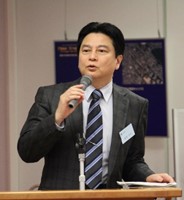
Professor TOKUGA Yoshihiro
“I specialize in accounting. Many beginning researchers in accounting face a barrier to their research and studies, which is a perspective and a way of thinking unique to accounting. However, I promise that, after you overcome that barrier, an attractive world will await you.”
[Course in the instructor’s charge]
Research Guidance
This Research Guidance course aims to help students determine their research theme and to give them research guidance so that they will be able to write their Master’s thesis. The course treats financial data as a vivid embodiment of the competitive environment in the relevant industries and the management strategies of companies, rather than an impersonal mass of numbers.
[Academic and career backgrounds]
TOKUGA Yoshihiro earned required credits in the Doctoral Program at the Graduate School of Economics, Kyushu University, and then obtained a PhD in Economics from Kyoto University in 1999. He assumed the position of professor at the Graduate School of Economics, Kyushu University, in 2000 and moved as a professor to the Graduate School of Economics, Kyoto University, in 2002. He concurrently served as a professor at the Graduate School of Management of the same university from 2006. At Kyoto University, he also worked as an assistant director in charge of finance, Dean of the Graduate School of Management, and Director of the Center for East Asian Economic Studies. Afterward, he served as Vice President of Kyoto University for three terms, from 2015 to 2020. In his activities in academic societies, he is now President of the Japan Accounting Association. He has also assumed many president and director positions of academic societies in Japan and abroad, including President of the Asian Academic Accounting Association. He specializes in international accounting and financial accounting. His book Kokusai-kaikei-ron (International Accounting) won the Ota-Kurosawa Prize. He has been long involved in formulating accounting regulations and standards in Japan, serving as Chairperson of the Corporate Accounting Council of the Financial Services Agency, a member of the Certified Public Accountants and Auditing Oversight Board, a member of the Accounting Standards Board of Japan, etc. Since April 2021, he has served as Dean of the Faculty of Economics and Business Administration, the Graduate School of Economics, and the Graduate School of Business Administration, Kyoto University of Advanced Science.
Course overview
Research Guidance
In this Research Guidance course, students will receive research guidance based on knowledge of Corporate Strategy and International Accounting toward the completion of their Master’s thesis about the research theme they determine.
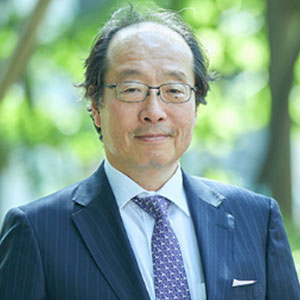
Professor NAWA Takashi
“I will leverage my vast experience of working as a management consultant, an outside director, a business school professor, etc. to guide students to master the way of thinking and skills which will be effective at the front line of real-world corporate management from various aspects, such as problem solving, innovation, and corporate reforms.”
[Courses in the instructor’s charge]
Corporate Strategy; Entrepreneurship; DX Management; Corporate Transformation; Global Management; Innovation; Creating Shared Value
[Academic and career backgrounds]
NAWA Takashi graduated from the Faculty of Law, University of Tokyo. He later joined the Harvard Business School and was awarded an MBA and recognized as a Baker Scholar there. He worked in the machinery division of Mitsubishi Corporation (in Tokyo and New York) for about 10 years. For about two decades until 2010, he was engaged in consulting as a director at McKinsey & Company. At the consulting firm, he served as the head of the Asian region in the automotive and manufacturing fields and the head of its Japanese branch in the high-tech and communications fields. He has been involved in a wide range of projects in various industries, such as those for next-generation growth strategies and company-wide structural reforms, in Japan, Asia, and the U.S. In June 2010, he assumed the position of professor at the School of International Corporate Strategy, Hitotsubashi University. He concurrently served as an outside director of DENSO Corporation (until 2019) and still serves as an outside director of Fast Retailing Co. Ltd., Ajinomoto Co., Inc., SOMPO Holdings, Inc., and NEC Capital Solutions, Ltd. He also worked as a senior advisor to Boston Consulting Group (until 2016) and still is a senior advisor to Interbrand and Accenture.
Course overview
Corporate Strategy
This course aims to enable students to learn basic concepts concerning corporate strategy and try to apply them practically. The course starts with explaining the main concepts, including “business diversification” and “global management” related to corporate strategy, as well as “cost leadership strategy,” “differentiation strategy,” and “business system strategy” related to business strategy. The course also elaborates on the concept of “dynamic capabilities,” a company’s ability to dynamically adapt to a rapidly changing environment, just like the current environment surrounding us. After that, students will learn organizational conditions for these elements and how to analyze the external environment. Based on these matters, the focus of the course shifts to case studies about corporate strategy. Here it is crucial for all students to participate in discussions to deepen their understanding. They are required to thoroughly read class materials in advance according to necessity.
Entrepreneurship
The purpose of the course is to enable students to learn, from the field of corporate management, what kinds of attitudes, skill sets, and leadership an entrepreneur must have. More specifically, students will learn the realities of various entrepreneurs in the world from case studies and the essence of entrepreneurship through direct dialogue with renowned entrepreneurs. This course aims to enable students to establish their own aspirations as an entrepreneur, identify the challenges they must solve to achieve the aspirations, and envision their own career paths toward their future growth as an entrepreneur.
DX Management
The world today is seeing the rapid progress of digital transformation (DX), including technological innovation in communications, software, sensing, etc. and the utilization of big data and AI. In this situation, companies are facing a wide range of challenges, including those of how they can utilize DX, what resources are appropriate investment targets for that purpose, and what kinds of risks should be focused on in the process of developing business models for risk management. This course aims to provide students with a good understanding of such trends toward DX and a guide to corporate management methods and to lead them to in-depth discussions about what practices are really needed.
Corporate Transformation
This course aims to guide students to understand how to change corporate management. The course starts with explaining the definition of change corporate management and its real examples. Next, the four representative models for changing corporate management will be introduced: the shrink-to-grow model, the self-disruption model, the model of a portfolio of initiatives, and the Möbius-strip model. The characteristics of each model, the key to successful use of them, and possible risks entailed by them will be examined. Finally, students will learn about the 8-step process for leading change as a method of making meaningful changes to corporate management and deepen their understanding of models for changing corporate management in the era of volatility, uncertainty, complexity, and ambiguity (VUCA), characterized by the unpredictability of the future.
Global Management
In the first half of this course, students will learn the four basic models for global management and particularly examine the transnational (glocal) model in detail. They will understand the importance of the roles of the “center of excellence” in that model and consider how to share knowledge globally. The second half of the course will be dedicated to introducing the latest models, including the AAA strategy, the emerging economy strategy, and innovation at the edge. Students will learn how to apply these models to real corporate management through case studies.
Innovation
Innovation is the growth engine of a company. In the first half of the course, students will learn the mechanisms for and dynamism of innovation. The basic methods of product innovation, process innovation, etc. will be also introduced. The second half of the course focuses on applied approaches, including open innovation, reverse innovation, and business model innovation, so that students will be able to learn how to apply these approaches to real-world businesses from various cases.
Creating Shared Value
This course aims to give an organized overall picture of international trends toward sustainability and trace the history of changes in CSR and business ethics over time. The course also deals with the SDGs and ESG investment, both of which have been a recent focus of public attention, to offer students deeper insight into the relationships between non-financial factors and corporate value and to lead them to consider what will be desirable corporate value in a sustainable society. The second half of the course focuses on the strategy of creating shared value (CSV), which links sustainability to corporate value, to explore how sustainability should be linked directly to real-world corporate management.
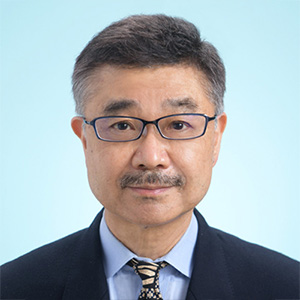
Professor MORI Kazuhiko
“In the field of marketing, which ‘creates’ customers, I aim to be a ‘wild researcher’ who can flexibly change perspectives based on thoughts hidden in human beings and raise problems even in any uncertain situation. Amid radical social, economic, and industrial change, I hope to pursue my studies toward a new future together with you while shifting the focus of marketing from analysis to abduction.”
[Courses in the instructor’s charge]
Marketing; Brand Management; Research Guidance
[Academic and career backgrounds]
MORI Kazuhiko completed the Master's Program in Informatics, Graduate School of Humanities and Sociology, University of Tokyo. As a staff member of the marketing and planning divisions of Daiko Advertising Inc., he was engaged in business vision development, product development, and marketing communication in many fields, such as tourism, liquor, food, and distribution. At Daiko Brand Design Inc., he worked as a brand strategist in such fields as theme-park business revitalization, consumer goods, and B2B branding. Furthermore, he has experience of being involved in a wide range of projects, including expo surveys, the formulation of basic concepts, business revitalization, support for people affected by the Great East Japan Earthquake, and workshop development from the perspective of art-oriented thinking. He also served as a jury member for an essay competition organized by the Japan Advertising Agencies Association from 2013 to 2017. He is now a director of Japan Marketing Academy and the representative of the research project “Study Group for Marketing in the Age of Industry Innovation.” He is also a member of the Society for Serviceology and the Japan Academy of Advertising.
Course overview
Marketing
This course aims to enable students to learn how to think and develop ideas to meet customer needs and provide valuable products and services for customers. Students will also learn about various activities for applying such ways of thinking and developing ideas strategically. The first half of the course focuses on increasing students’ understanding of basic concepts relating to marketing, including 4P, 4C and STP analysis and other strategic marketing approaches, consumer behavior analysis, product development, product differentiation, distribution channels, value chains, communication strategy, and online marketing. Based on knowledge of these concepts, the second half of the course will be centered on case studies and dedicated to more advanced discussions about customer relationships, brand establishment and growth, digital marketing, service marketing, and manufacturers’ shift to the service business. Moreover, students and the instructor will have in-depth discussions about contemporary themes, such as data analysis, innovation, job theory, value co-creation with customers, and user experience, in view of their practical applications. Students are required to submit a short essay in each class so that they will become fully aware of what questions they want to tackle.
Brand Management
This course aims to enable students to understand the concept of a brand, which plays a leading role in corporate activities and organizational management, and learn how to perform management based on equity resources and the brand philosophy, both of which determine the direction of business. With brand equity and brand identity as a starting point, the first half of the course, given in a lecture style, focuses on guiding students to acquire knowledge and understanding of types of brands by company, product and service, brand hierarchy, and the basic functions and roles of brands, including strategic expansion, as well as brand systems. In the second half of the course, students and the instructor will have discussions based on case studies about branding that can help establish both unique distinctive value and close relationships with customers so that students will be able to deepen their knowledge of practical activities and skills, including brand loyalty, brand relation, and internal branding, on a project basis. Furthermore, students will gain a deeper insight into brand management, which is expanding to various fields—B2B, local communities, nation states, medical institutions, and universities—through brand purposes and meaning-based branding in parallel with the progress of digitalization.
Research Guidance
In this Research Guidance course, students will receive research guidance based on knowledge of Marketing Management and Brand Management toward the completion of their Master’s thesis about the research theme they determine.

Professor SHIMIZU Hiroko
“It is no exaggeration to say that nothing surrounding us, from an iPhone to a T-shirt, could be produced in one country alone. Our lives are linked to the world, and our behavior now influences the entire environment in the world. I examine the development of the international economy amid the progress of globalization through such themes as international trade, the environment, and economic policies through interdisciplinary case studies.”
[Courses in the instructor’s charge]
International Economics; Research Guidance
[Academic and career backgrounds]
SHIMIZU Hiroko studied at Zhengzhou University, Henan Province, China, during her enrollment in the Department of History, Gakushuin University. After working at JTB Corporation, she completed the Master's and Doctoral Programs at the Osaka School of International Public Policy. She worked as an international researcher at Johns Hopkins University in the U.S., an executive assistant at Panasonic Canada, and a researcher at the Molinari Economic Institute in Belgium. Afterward, she assumed her current position in April 2019.
Course overview
International Economics
This course aims to reveal the contemporary international situation and its meaning to corporate management through a geo-economic approach, which helps analyze the international situation based on geography, ethnicity, religion, resources, demography, etc. More specifically, this course deals with ethical issues entailed by economic policies, the impact of international frameworks, such as the WTO, the cost of economic growth, etc. In addition, current issues, including the meaning of China’s hegemonism and the rise of nationalism, will be also discussed.
Research Guidance
In this Research Guidance course, students will receive research guidance based on knowledge of International Economics toward the completion of their Master’s thesis about the research theme they determine.
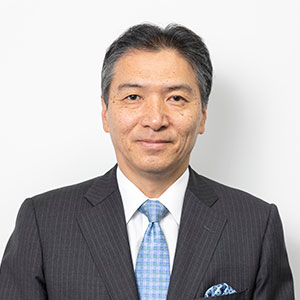
Lecturer ITO Tomonori
“M&A is now an indispensable strategic tool for Japanese companies. I hope that students will acquire practical knowledge of M&A, which corporate managers must have, through this course.”
[Course in the instructor’s charge]
Mergers and Acquisitions
[Academic and career backgrounds]
In 1979, ITO Tomonori graduated from the Faculty of Economics, University of Tokyo, and joined the Bank of Tokyo, Ltd. (currently MUFG Bank, Ltd.). He worked in the International Corporate Department, Capital Markets Department 1, the New York Branch, etc. While working at the New York branch, he was seconded to The Bear Stearns Companies, Inc., a U.S.-based investment bank, and engaged in M&A operations on a full scale. As a Bank of Tokyo staff member, he had the opportunity to study at Harvard Business School and obtained an MBA in 1984. In March 1995, he moved to the Tokyo branch of Union Bank of Switzerland (currently UBS). He served as Managing Director and Investment Bank Division General Manager of UBS Securities Japan Co., Ltd. from June 1998. During that period, he was involved in numerous projects for privatization, IPO, equity finance of publicly listed companies, corporate bond issuance, and M&A. In April 2011, he assumed the position of specially appointed professor at the School of International Corporate Strategy, Hitotsubashi University. He became a professor there in October 2012. As for September of 2021, he is acting as a professor at the Center for Business and Finance Research at Waseda University Business School.He is now an outside director of Aozora Bank Ltd. and the Electric Power Development Co., Ltd. (J-POWER).
Course overview
Mergers and Acquisitions
This course aims to enable students to understand M&A strategy and the M&A process and acquire a level of knowledge that will immediately help them even if they actually get involved in M&A operations.
1. M&A strategy
2. M&A process
3. Corporate evaluation in M&A
4. Post-merger integration (PMI)
5. Learn about private equity and other matters and tackle the questions of how an M&A can succeed and what will lead an M&A to failure This course is taught not only in a one-way lecture style but also with case studies on HOYA and JT and guest speakers with first-hand experience in cross-border M&A so that students will be able to acquire practical knowledge of M&A.

Lecturer WU Qi
“I specialize in accounting. Bookkeeping, which is the basis of accounting, is a tool for recording, calculating, and organizing numerical data on a company. Knowledge of bookkeeping will enable you to thoroughly understand company data. Financial statements are an accumulation of company data. Learn to analyze financial statements so that you will be able to reveal the current state of a company and envision its future!”
[Courses in the instructor’s charge]
Practical bookkeeping; Research Guidance
[Academic and career backgrounds]
WU Qi obtained a DBM from Kobe University in 2018. She specializes in accounting and focuses on sustainability accounting. She has recently been conducting research aimed at constructing environmental management control systems that promote public efforts to achieve the SDGs and international research on sustainability accounting. Since 2019, she has been a lecturer at the Faculty of Economics and Business Administration, Kyoto University of Advanced Science and Technology.
Course overview
Practical Bookkeeping
This course is intended for students in bookkeeping and accounting to acquire the basic knowledge and perspectives of commercial bookkeeping for commercial enterprises and industrial bookkeeping for manufacturers. The course starts with imparting to students knowledge of additive subtraction, a calculation method, unique to the double-entry bookkeeping system, which uses the double-classification and settlement of debits and credits, as well as the basic concepts of assets, liabilities, capital, income, and expenses. In commercial bookkeeping, students will learn about the structures of a balance sheet and an income statement and the calculational relationship between them, and then they learn how to record and compile data on activities such as purchase and sale to prepare financial statements that accurately reflect those activities. In industrial bookkeeping, students will learn mechanisms for calculating material costs, labor costs, and other costs as the cost of manufacturing a product in the cycle of material procurement, product manufacturing, and sale in the manufacturing industry.
Research Guidance
This Research Guidance course assists in research guidance for students based on knowledge of Management Accounting, which is necessary for management decision-making, toward the completion of their Master’s thesis about the research theme they determine.
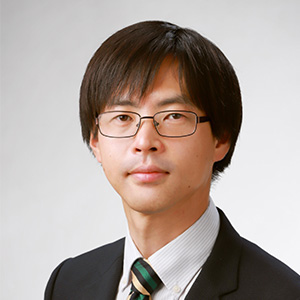
Lecturer SUZUKI Hiroyuki
“I hope that the course based on a textbook used in Europe and North America, taught by a lecturer with teaching experience in both Japan and the UK, will help students learn accounting from a global perspective and become aware of the potential of accounting as a universal language that connects diverse in-house and outside stakeholders and as a compass that shows the right direction of decision-making and performance management.”
[Course in the instructor’s charge]
Accounting
[Academic and career backgrounds]
SUZUKI Hiroyuki graduated as a valedictorian from the Faculty of Commerce and Management, Hitotsubashi University, in March 2008. He completed the Master’s Program (Five-year Researcher Training Program) at Hitoshubashi School of Business Administration in March 2009. He obtained a PhD from Manchester Business School, the UK, in December 2015. He then worked as a lecturer at Swansea University and the University of Bristol in the UK. Since June 2021, he has worked as a lecturer at the Graduate School of Economics, Kyoto University. He specializes in management accounting. Using a qualitative method, he studies Japanese companies’ practice of management accounting mainly from the perspective of its impact on human behavior, culture and society.
Course overview
Accounting
This course aims to enable students to obtain specialized knowledge and perspectives of financial accounting and management accounting. Financial accounting is intended for stakeholders outside a company, while management accounting is intended for various levels of business managers, including top management. While taking some examples, the course elaborates on the two roles of financial accounting: sharing information that is necessary for stakeholders’ decision-making and supporting management in entering into contracts. In addition, heightened awareness of ESG and the SDGs in the international community has recently required companies to disclose non-financial information, which will be also explained mainly based on integrated reports in this course. Meanwhile, the course also deals with the role of management accounting in cost management, budget management, and performance management while taking some examples and mentioning new DX-related management methods as well. The course finally discuss approaches toward company analysis that combine knowledge of financial accounting and management accounting with management strategy.

Lecturer NAKAYAMA Junichiro
Based on my vast experience of conducting various duties as an engineer and managing corporate laboratories in Japan and abroad, I will introduce to students practical principles and methods of ESG- and SDG-oriented technology management, as well as approaches toward supervising it. By doing so, I hope to consider what kind of management can lead to technological and other forms of innovation together with students.
[Course in the instructor’s charge]
Technology Management
[Academic and career backgrounds]
In 1986, NAKAYAMA Junichiro graduated from the Graduate School of Engineering, Osaka University, and joined Sharp Corporation. From 2006, he worked at Sharp Laboratories of America, Inc. and assumed the position of Vice President and Director of the company. After returning to Japan in 2015, he worked at Advanced Research Laboratories of the Corporate R&D Group, Sharp Corporation. He also served as a part-time visiting professor at the Institute for Nano Quantum Information Electronics, University of Tokyo, and managed a lab established through collaboration between Sharp and the University of Tokyo. He was also a trustee of the Osaka University Academia-Industry Liaison Consortium for Human Resource Development on Nano Science and Engineering. He joined Nidec Corporation in 2016. Since 2019, he has served as a vice president of the company and the head of the Nidec Research and Development Center.
Course overview
Technology Management
This course aims to enable students to learn strategies for technology management. The studies of Technology Management can be briefly described as the studies of corporate management strategy, focusing on technology or the studies of corporate management strategy that leverages technology. The studies of Technology Management are sometimes referred to as the studies of “technology-based corporate management” or “innovation management.” In general, strategic management is essential for completing a product based on the results of research and technology development, launching it on the market, and raising it to a product that can be accepted by a wide range of customers while continuing to win fierce competition against other companies that enter the market one after another. This course not only deals with the management of research, technology development, and production but also examines how technological prowess can be linked to customer value to ensure that the business will take root and grow and furthermore how intellectual property as the fruit of R&D should be managed, while taking examples from various industries.
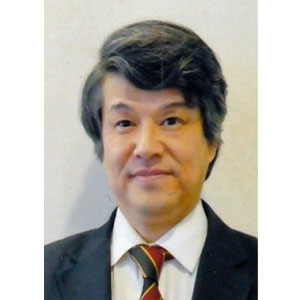
Lecturer NISHIGUCHI Toshihiro
“Amid drastic changes in the business environment, the number of players with whom we should interact is skyrocketing, and they are being rapidly replaced with other players. Meanwhile, the continuing situation with high uncertainty even as to the immediate future increasingly urges us to become prepared for the unknowable. How should management address this contemporary challenge? Let's explore solutions based on recent cases.”
[Course in the instructor’s charge]
Production and Development Management
[Academic and career backgrounds]
NISHIGUCHI Toshihiro is a Professor Emeritus of Hitotsubashi University. He is also a visiting professor at Musashi University. He was born in Hyogo Prefecture and graduated from the School of Political Science and Economics, Waseda University. He obtained a Master’s degree from the University of London and a PhD in Sociology from the University of Oxford. He worked as a researcher at MIT and INSEAD, as an assistant professor at the Wharton School of the University of Pennsylvania, and as a professor at Hitotsubashi University. He specializes in organization theory and network theory. He has assumed many important positions in academic societies and government organizations. He has authored and co-authored many books, including Komyuniti-kyapitaru-ron (lit. “Community Capital Theory”), Nettowaku-shiko no susume (An Introduction to Network Thinking), Enkyorikosai to kinjozukiai (Global Neighborhoods: Strategies of Successful Organizational Networks), Chushokigyo nettowaku (Small Firm Networks), and Strategic Industrial Sourcing (Japanese version: Senryakuteki autososhingu no shinka). The last English book received the Shingo Prize Research and Professional Publication Award and the Nikkei Prize for Excellent Books in Economic Science, and it was selected among the Outstanding Academic Titles by Choice, a publishing unit of the Association of College and Research Libraries, a division of the American Library Association.
Course overview
Monozukuri Business Administration
In this course, students will learn about the basic concepts of Japanese Industrial Manufacturing Management (monozukuri Management). This includes technology management, production management, supplier management, value creation, manufacturing, and industrial competitiveness. We will explore the interface between engineering and the social sciences from a multidisciplinary viewpoint.

Lecturer HAGHIRIAN, Parissa
“Studying international business administration is the key to a brilliant long-term career. Our industrial and business worlds are experiencing rapid, drastic changes. It is now crucial to continue to learn different styles of innovation, globalization and management. My goal is to support every student so that they will become confident and able to improve the style of international business administration in their country.”
[Course in the instructor’s charge]
Marketing
[Academic and career backgrounds]
Parissa HAGHIRIAN was born in Graz, Austria. She graduated from Japanese Studies, Department of East Asian Studies, University of Vienna. She obtained a PhD from the PhD Program International Business at Vienna University of Economics and Business. In 2004, she came to Japan and started teaching international business at Kyushu Sangyo University. In 2006, she was appointed as a professor at Sophia University. Now as a professor at the Faculty of Liberal Arts, Sophia University, she continues her research and educational activities, focusing on business administration in Japan, cross-culture, and business strategy. She is a part-time lecturer at Kyoto University of Advanced Science and Technology.
Course overview
Marketing
This course aims to enable students to learn how to think and develop ideas to meet customer needs and provide valuable products and services for customers. Students will also learn about various activities for applying such ways of thinking and developing ideas strategically. The first half of the course focuses on increasing students’ understanding of basic concepts relating to marketing, including 4P, 4C and STP analysis and other strategic marketing approaches, consumer behavior analysis, product development, product differentiation, distribution channels, value chains, communication strategy, and online marketing. Based on knowledge of these concepts, the second half of the course will be centered on case studies and dedicated to more advanced discussions about customer relationships, brand establishment and growth, digital marketing, service marketing, and manufacturers’ shift to the service business. Moreover, students and the instructor will have in-depth discussions about contemporary themes, such as data analysis, innovation, job theory, value co-creation with customers, and user experience, in view of their practical applications. Students are required to submit a short essay in each class so that they will become fully aware of what questions they want to tackle.
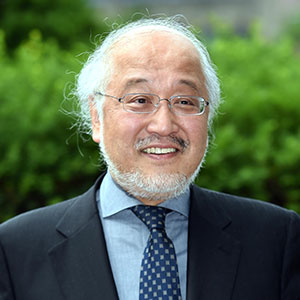
Lecturer FUJIMOTO Takahiro
“I teach production and development management performed in the industrial field. The studies of Production and Development Management in a broad sense aim to create a good process of creating good designs (as added value) so they can be applied to not only manufacturing but also the service industry. In my course, strategic challenges in the 2020s, including digital manufacturing and global supply chains, are also analyzed.”
[Course in the instructor’s charge]
Production and Development Management
[Academic and career backgrounds]FUJIMOTO Takahiro graduated from the Faculty of Economics, University of Tokyo, in 1979. After working at Mitsubishi Research Institute, Inc, he studied in a doctoral program at Harvard University. From 1990 to 2021, he served as an assistant professor and then a professor at the Faculty of Economics, University of Tokyo, and as Director of the Manufacturing Management Research Center at the same university. Since 2021, he has served as a professor at Waseda University. He is the Representative of the Monozukuri Kaizen Network. He specializes in technology and production management and evolutionary economics. He has won many prizes, including the Nikkei Prize for Excellent Books, the Takamiya Prize of the Academic Association for Organizational Science, the Shingo Prize, the Imperial Prize of the Japan Academy, and the Architectural Institute of Japan Book Prize. He has authored and co-authored many books, including Product Development Performance (Japanese version: Seihinkaihatsu-ryoku), Evolution of Manufacturing Systems at Toyota (Japanese version: Seisan-shisutemu no shinka-ron), Nihon no monozukuri-tetsugaku (lit. “Japanese Philosophy of Manufacturing”), Competing to Be Really, Really Good (Japanese version: Noryoku-kochiku kyoso), and Genba-kara miageru kigyosenryaku-ron (lit. “Corporate Strategies Looked Up at from the Field”).
Course overview
Monozukuri Business Administration
In this course, students will learn about the basic concepts of Japanese Industrial Manufacturing Management (monozukuri Management). This includes technology management, production management, supplier management, value creation, manufacturing, and industrial competitiveness. We will explore the interface between engineering and the social sciences from a multidisciplinary viewpoint.
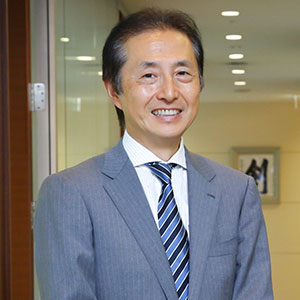
Lecturer MITACHI Takashi
“Developing leadership is something like a journey. The first step is to prepare an ‘itinerary’ of the journey you are going to make. I hope that students learn together with me with the aim of planning a good itinerary.”
[Course in the instructor’s charge]
Leadership
[Academic and career backgrounds]
MITACHI Takashi graduated from the Department of American Literature, Faculty of Letters, Kyoto University. He obtained an MBA with High Distinction, Baker Scholar, from Harvard University. After working at Japan Airlines Co., Ltd., he joined Boston Consulting Group (BCG) in 1993. At BCG, he served as its Japan representative from 2005 to 2015 and a member of its Global Executive Committee from 2006 to 2013.
He is still with BCG and serves as an outside director of Rakuten Group, Inc., DMG Mori Co., Ltd., Tokio Marine Holdings, Inc., etc., as Chief Executive Director of Ronald McDonald House Charities Japan, a trustee of the Ohara Museum of Art, and as a special professor at the Graduate School of Management, Kyoto University.
His books include Senryaku ‘no’ wo kitaeru: BCG-ryu senryakuhasso no gijutsu (The BCG Way: The Art of Strategic Insight; Toyo Keizai Inc.), Keieishiko no ‘hojosen’ (lit. “An ‘Additional Line’ for Management-oriented Thought”; Nikkei Business Publications, Inc.), Henka no jidai, kawaru chikara (lit. “An Age of Change, Power for Change”; Nikkei Business Publications, Inc.), Bijinesu gemu seori: keieisenryaku wo gemu-riron de kangaeru (lit. “Business Game Theory: Devise a Management Strategy Based on Game Theory”; Nippon Hyoron Sha Co., Ltd.; co-authored), and Jioekonomikusu no seiki: G-zero-go no nihon ga ikinokoru michi (The Age of Geo-Economics; Nikkei Business Publications, Inc.; co-authored).
Course overview
Leadership
Top corporate management must establish leadership to produce satisfactory results by winning the hearts and minds of the staff. This course aims to enable students to learn the requirements that leaders must meet irrespective of the time and the new requirements that they must meet in the current age of drastic changes toward the near future.
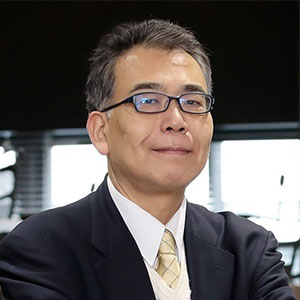
Lecturer MORIYA Takashi
“In this course, I will impart to students my academic wisdom in a wide range of fields, from business administration to sociology, and vast experience in fieldwork and interview surveys. The students are expected to acquire ability in strategic thinking, which will help them in their management practices in the future, and the latest and practical knowledge of human resource management and trends in it, as well as various other skills.”
[Course in the instructor’s charge]
Human Resource Management
[Academic and career backgrounds]
MORIYA Takashi graduated from the Undergraduate School of Business Administration, Kwansei Gakuin University, in 1985. After completing the Master’s program at the Graduate School of Business Administration at the same university and obtaining a Master’s degree in Business Administration, he left the PhD program midway at the same graduate school in 1992. In 2004, he completed the PhD program at the Graduate School of Sociology, Ritsumeikan University. He received a PhD in Sociology from the university by submitting the dissertation Nihonkigyo eno seikashugi no donyu: kigyonai-kyodotai no henyo (lit. “Introduction of Performance-based Personnel Evaluation into Japanese Companies: Transformation of In-house ‘Communities’”; published by Moriyama Shoten). He was appointed as a full-time lecturer at Nara Sangyo University (currently Naragakuen University) in 1992, as an assistant professor in 1994, and as a professor in 1999. He also served as Dean of the School of Business Administration at the same university in 2005. Since 2006, he has been a professor at the College of Business Administration, Ritsumeikan University. Since 2018, he has served as Vice Principal of Ritsumeikan University Business Succession School. He has also held various external posts, including those of a member of the Public Welfare Committee for the Kyoto Prefectural Minimum Wage Council, the Chairperson of the Journal Editorial Committee for the Japan Society of Human Resource Management, and a director of the Japan Academy of Business Administration. From April 2020 to March 2022, he was a senior research fellow at the Asia Pacific Institute of Research. At the institute, he served as the research leader of the research project “Cooperating with Asian human resources.”
Course overview
Human Resource Management
This course enables students to learn how to manage human resources, one kind of rare resources for companies. Effective use of human resources will help companies achieve their company-wide goals and boost their overall performance. Human resource management (HRM) at Japanese companies has developed in a unique way in line with working styles and labor markets in the country. This course aims to help students deepen their knowledge of basic HRM-related concepts, such as “work motivation” and “organizational commitment,” and learn systematically about the characteristics of the Japanese way of corporate HRM and the global HRM standards. Based on the deepened and newly obtained knowledge, students will discuss future visions of corporate HRM from the perspective of international comparison.
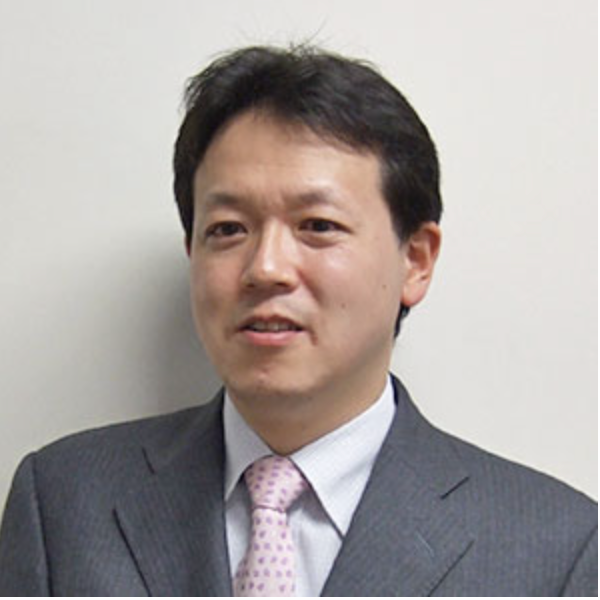
Lecturer YAMADA Yoshitaka
Accounting and management information is an indispensable communication tool in the business world. However, the recent progress in establishing internationally common accounting standards has caused a rapid expansion of the scope of application of such international standards to sustainability and other kinds of data. I hope that students will acquire the most advanced knowledge of and practical skills concerning the thus rapidly evolving global standards for accounting and management information so that they will demonstrate their talents in the global business world.
[Course in the instructor’s charge]
International Financial Reporting
[Academic and career backgrounds]
YAMADA Yoshitaka is a certified accountant (in Japan and the U.S.), a certified fraud examiner (CFE), a certified management accountant (CMA), and a certified internal auditor (CIA). He graduated from the Faculty of Economics, Kyoto University. He completed the Master’s Program in Accountancy at the University of Illinois, the U.S., and obtained a Master of Science in Accountancy there. He joined Chuo Audit Corporation in 1994. Since 2007, he has been a partner of Kyoto Audit Corporation (currently PricewaterhouseCoopers Kyoto). Since 2021, he has been an auditor of the Japan Auditing Association.
Course overview
International Financial Reporting
This course aims to enable students to learn about International Financial Reporting Standards (IFRS) from a practical perspective. IFRS are currently used in more than 140 countries as a set of international standards for corporate financial reporting. In Japan too, the use of IFRS is spreading, with companies that have voluntarily adopted IFRS accounting for over 40% of the total market capitalization of the Japanese stock market. Understanding of IFRS is now one of the key business skills. Moreover, the field of corporate financial reporting has recently been seeing various changes. It is also important to understand the details and backgrounds of those changes. In this course, students will learn the basic principles and content of IFRS to become able to fully grasp the condition of each company from IFRS-based financial information. They will then deepen their understanding of IFRS by comparing IFRS with other accounting standards and analyzing examples of real financial statements.
